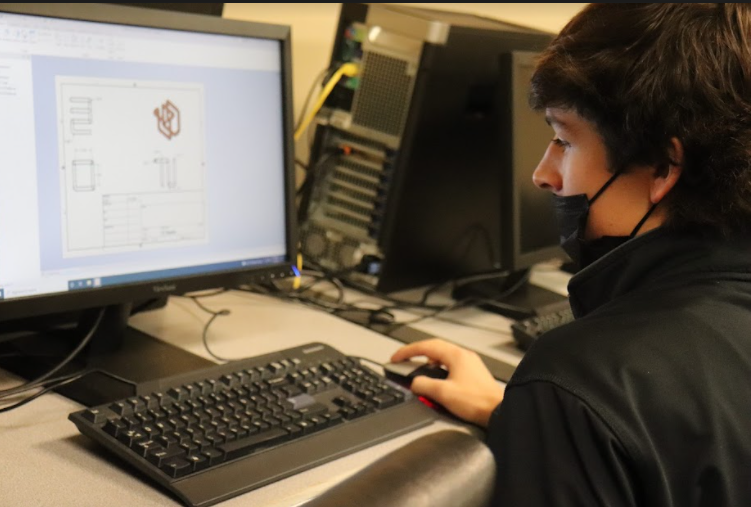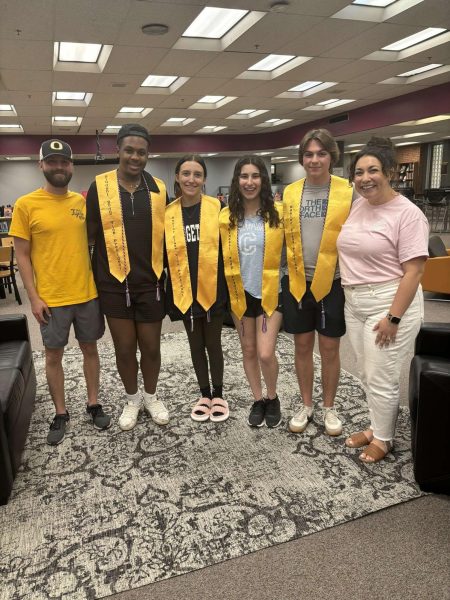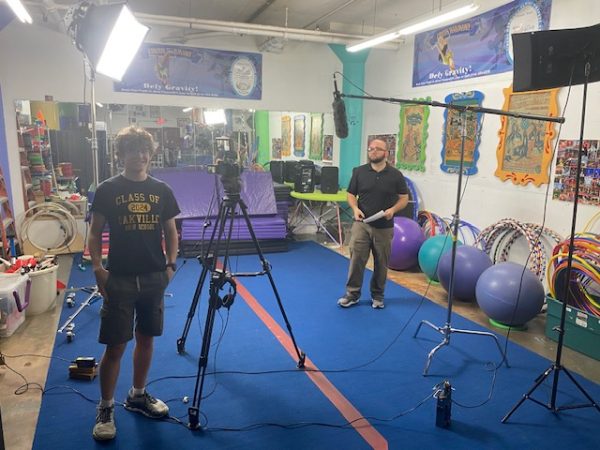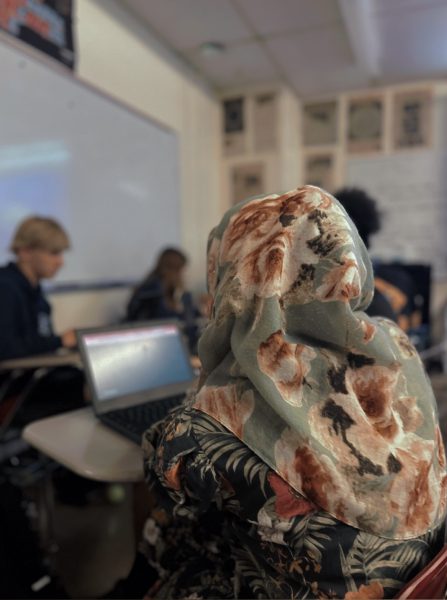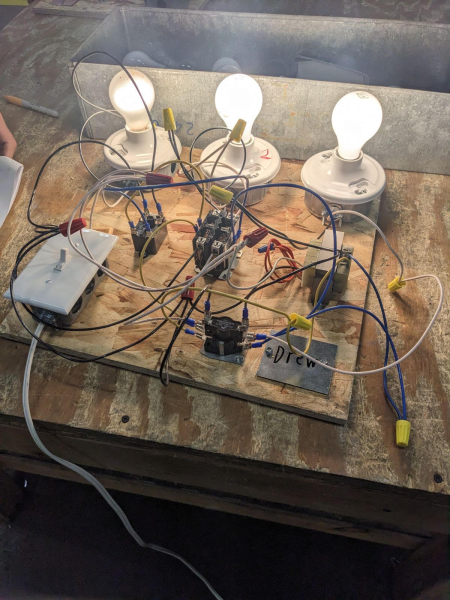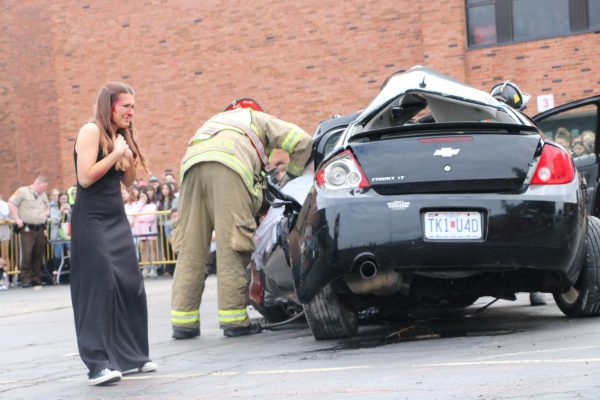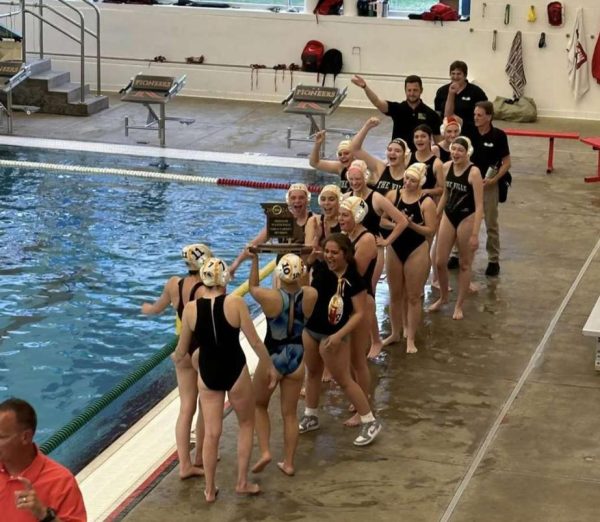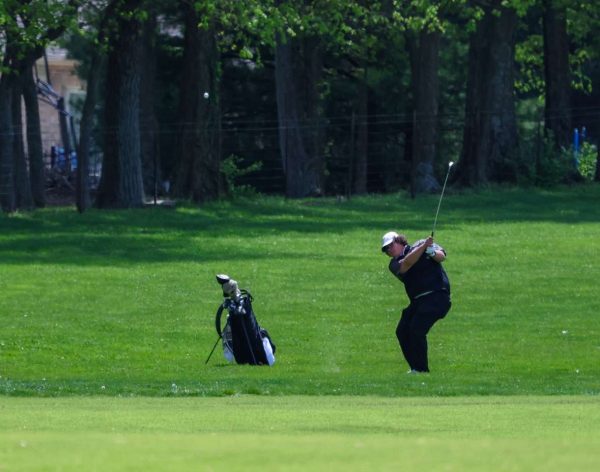STL CAPS provides look into the future for high school students
Joe Santacruz (12) works on his engineering project. “Right now we’re learning about software, which is what I’m gonna use when I get a job in engineering,” Santacruz said. “I also get to learn what it’s like to work with groups. Visiting the companies is also beneficial because I get to see what it’s like in the workplace.”
STL CAPS is an enticing opportunity for high school juniors and seniors in the STL area. Standing for St. Louis Center for Advanced Professional Studies, students interested in business, engineering, medicine, technology or teaching can get a head start on their future through a unique and hands-on learning experience. The program prides itself on preparing students for their future in their respective career fields. By immersing students into a real work environment and giving them mentors who know what it means to be successful in their fields, they are more prepared for their careers and become more appealing to universities and employers.
“My brother was here before me, and he said you get a ton of cool opportunities, going to businesses, getting to see what it’s like to be an actual engineer. I wanna be a mechanical engineer, and I think this experience is gonna help me out a lot,” Joe Santacruz (12) said.
Through the engineering and advanced manufacturing course, students get hands-on experience in the field. While learning about design, manufacturing and problem solving, they work in teams to find solutions to engineering issues plaguing real companies. Using state of the art tools and technology, students are encouraged to think outside of the box and apply their knowledge of engineering outside of a classroom setting. Projects are specific to each student’s career goal, with courses ranging from mechanical engineering, chemical engineering, electrical engineering, civil engineering, software/computer, architecture, advanced manufacturing, robotics, biological engineering and environmental engineering.
“I think this project I’m doing right now is probably my favorite because it’s the most hands-on,” Santacruz said. “We get to make a big pipeline and put it in the freezer, test it, test the water. You have to do a lot of research first, and you just get to learn what it’s like to build.”
Global business and entrepreneurship offers many of the same opportunities, including mentorship, direct experience and involvement in real-world businesses. Students have the opportunity to work with businesses that align with their specific career goals, with choices ranging all around the scope of entrepreneurship and business management. Currently, they are working with the St. Louis County Police Welfare Association to improve their annual golf tournament.
“They’ve been doing this golf tournament for 30 years now, and basically the job to do is update how people reach out to them, their website and how people can register and pay,” Emir Mustajbegovic (11) said.
CAPS also offers technology solutions and logistics, where students are immersed into a vast array of technology and design skills. Students are able to work with clients on projects and find mentors in the field. Software engineering skills are placed at the forefront of the course, and students create a professional portfolio in order to aid in future career opportunities.
Additionally, the medicine, healthcare and bioscience options help hopeful doctors and other healthcare professionals learn about human anatomy, how to care for patients, medical language fluency and ethics, all while meeting people who have found success in the area. By learning directly from professionals, students get a real look into what a career in medicine or healthcare could mean for them.
Teaching careers in education prepares students in a variety of teaching styles and methods, while giving them the opportunity to teach in an actual classroom setting. Students collaborate with one another to learn the teaching methods that work best for them. They also receive advice and mentorship from teachers, and are able to expand their knowledge of how students learn.
“I wanted to see if being a teacher was actually what I wanted to do,” Haley Watz (12) said, “and I knew I would get more experience out of it, seeing different grade levels and different situations.”
The STL CAPS program has given numerous students the opportunity to learn in a more project-based, real-world setting. Students are able to truly know if their dream career is the correct fit for them, while also gaining invaluable knowledge and experience that will help them in any future endeavors.
“All throughout high school I wanted to be an engineer, so I saw this as an opportunity to get a head start on that,” Sam Bahr (12) said. “I’ve always liked knowing how things work. I really like cars. Just designing things is something I really like, so CAPS was a great option for me.”


